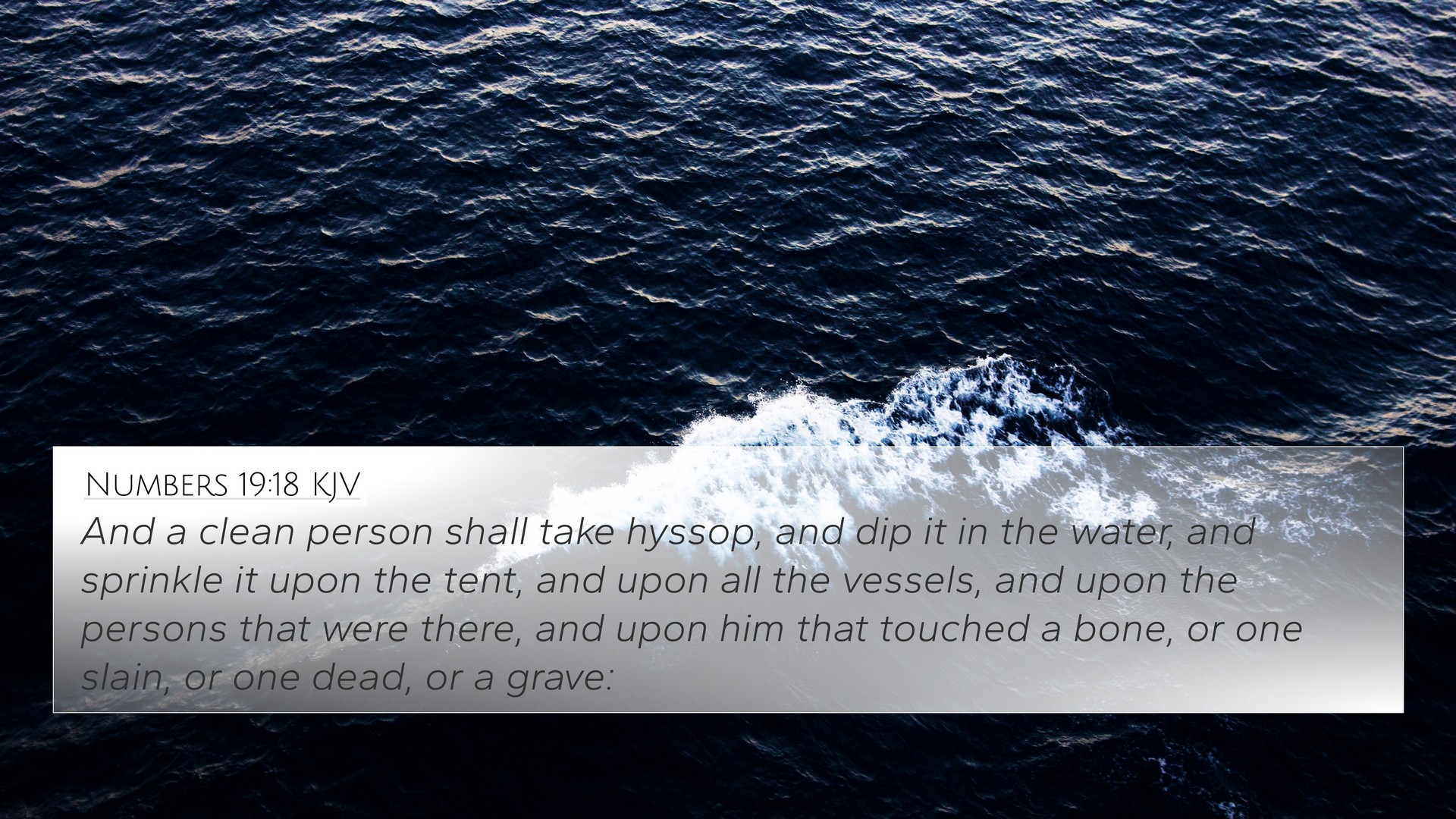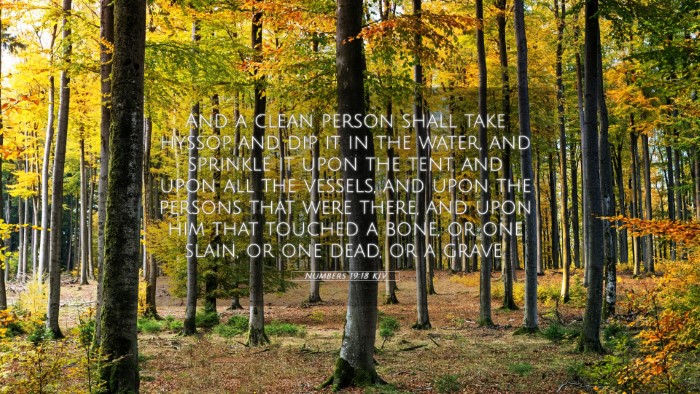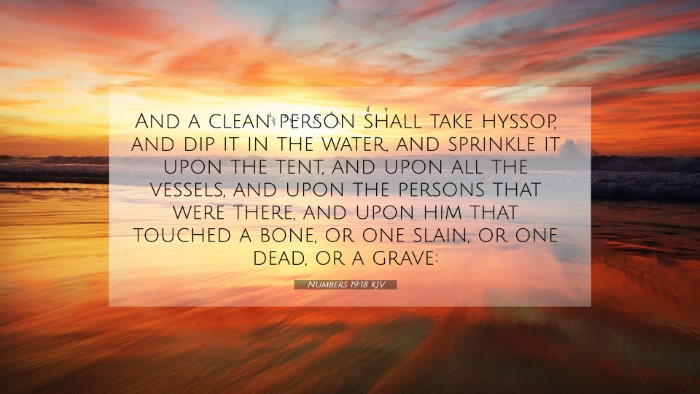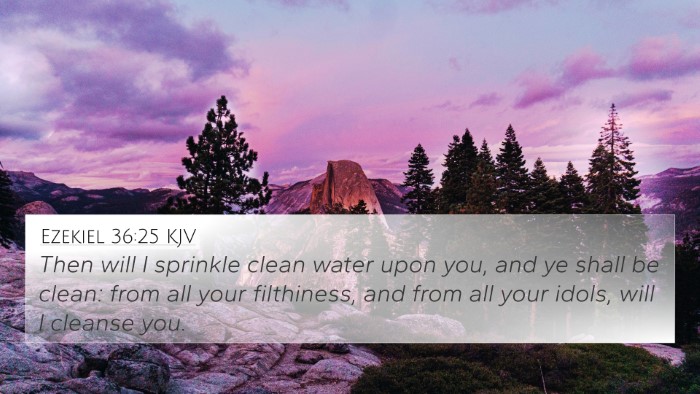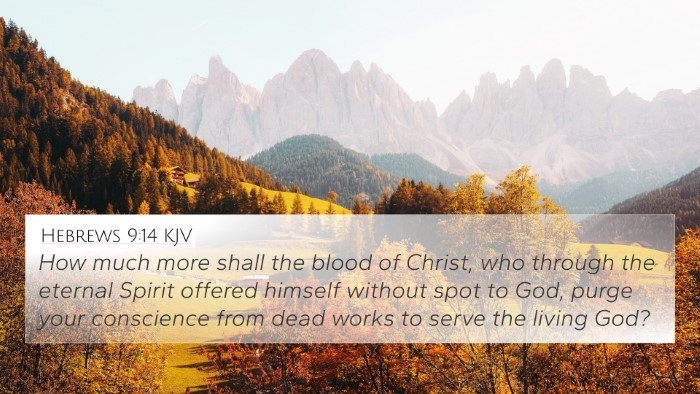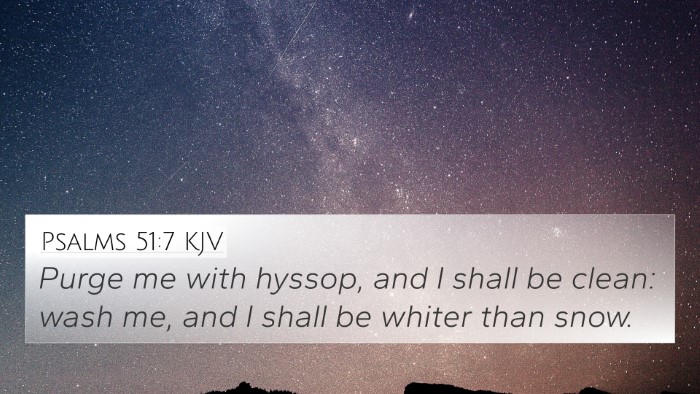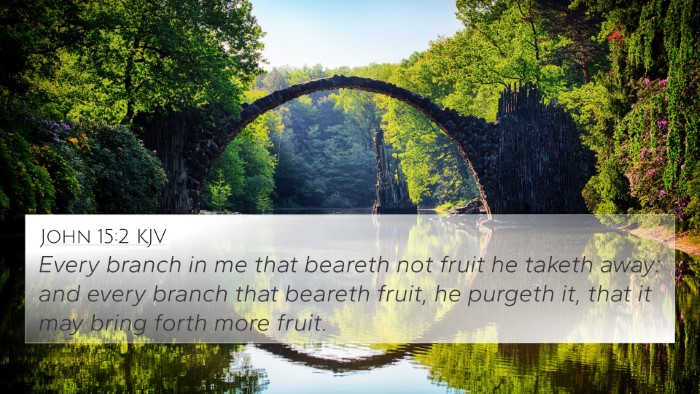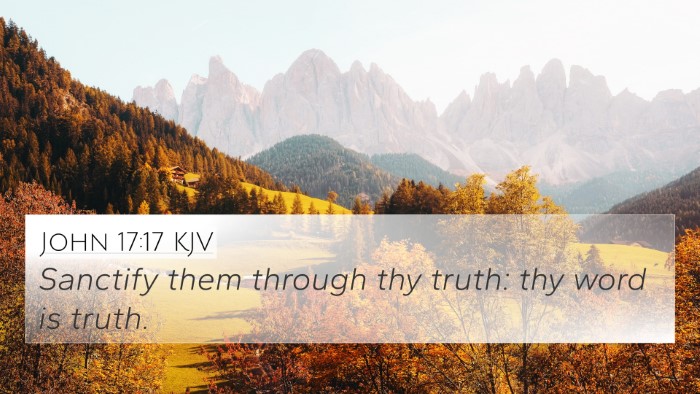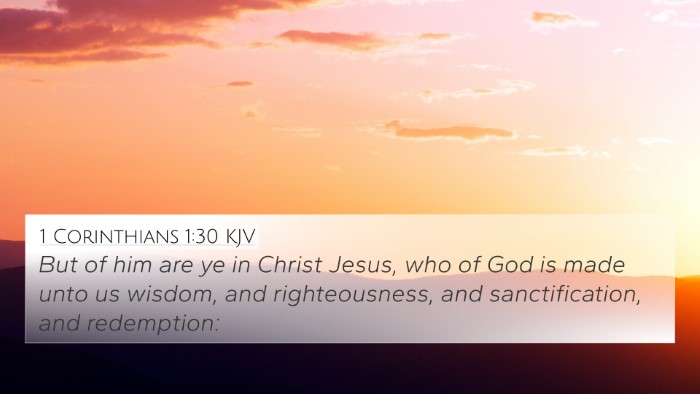Understanding Numbers 19:18
Numbers 19:18 states, "And a clean person shall take hyssop, and dip it in the water, and sprinkle it upon the tent, and upon all the vessels, and upon the persons that were there, and upon him that touched a bone, or one slain, or one dead, or a grave:" This verse is situated in the context of the laws of purification relating to the ritual cleansing from contact with the dead. The significance of this particular ordinance can be explored through various public domain commentaries.
Significance of Purification
According to Matthew Henry, this verse emphasizes the gracious provision God has made for general pollution from touching things associated with death, which signifies the sinfulness and the consequences of sin. The act of sprinkling symbolizes the application of God's purification through a clean person to those who have been rendered unclean.
Albert Barnes notes that hyssop, used for sprinkling, carries a meaning of purification throughout Scripture, including its use in the Passover (Exodus 12:22) and symbolic references in Psalm 51:7. The clean person's role is instrumental in transferring the purity required for approaching God, reflecting the themes of atonement and reconciliation.
Adam Clarke focuses on the typological significance of this verse. Hyssop represents the means by which the sinner can see their guilt cleansed and live in the presence of God. Clarke's analysis reveals the connection between physical rituals and the spiritual need for cleansing from sin, which prefigures Christ's redemptive work.
Cross-References and Connections
This verse is intricately linked with multiple other scriptures that reflect its themes of purification and atonement. Below are some notable cross-references:
- Exodus 12:22 - The use of hyssop in the Passover, symbolizing protection and cleansing from judgment.
- Psalm 51:7 - "Purge me with hyssop, and I shall be clean; wash me, and I shall be whiter than snow," highlighting the importance of purification.
- Hebrews 9:22 - "Without the shedding of blood there is no remission," underlines the sacrificial system that links to the theme of cleansing.
- 1 John 1:7 - "The blood of Jesus Christ his Son cleanseth us from all sin," connecting New Testament atonement with Old Testament purification rituals.
- Leviticus 14:6 - Another instance of hyssop in the cleansing ritual for leprosy, showing God's continued provision for purification.
- Matthew 23:27 - Jesus' critique of the Pharisees and their outward purity contrasted with inward filthiness underscores the need for true cleansing.
- Revelation 21:27 - The ultimate purification seen in the New Jerusalem where nothing unclean will enter, illustrating the goal of God's redemptive plan.
Thematic Connections
The verse raises significant points for cross-referencing, emphasizing the thematic connections between the Old and New Testaments regarding ritual purity and spiritual cleansing:
- Purification Rituals: Explore how ritual acts prefigured deeper spiritual truths in Christ.
- Hyssop as a Symbol: Study the recurrence of hyssop in scripture as a symbol of cleansing and purification.
- The Role of the Clean Person: Investigate the implications of intermediaries in the sacrificial system and their reflections in the New Testament.
- Connections between Physical and Spiritual Cleansing: Comparative studies of outward rituals and their New Testament fulfillments through Christ.
How to Use Bible Cross-References for Deeper Study
Utilizing cross-referencing while studying Numbers 19:18 can unveil profound layers of meaning and connection in Scripture. Here are effective methods:
- Use a Bible concordance to locate passages related to purification and atonement.
- Engage in cross-reference Bible study by mapping out themes reflected in the cited verses.
- Employ a Bible cross-reference guide to assist in linking relevant texts and developing a comprehensive understanding of purification.
- Identify Bible verses related to the theme of cleansing and atonement through thematic study.
- Conduct a comparative study between the practices of the Old Testament and their significance in the New Testament.
Conclusion
In summary, Numbers 19:18 encapsulates profound insights into the theme of purification and its requisite for communion with God. Understanding this verse through public domain commentaries elucidates the necessity of cleansing, whether physical, spiritual, or both, as integral to God’s covenant relationship with His people. Through attentive cross-referencing and thematic exploration, one can appreciate the unity of Scripture and the overarching narrative of redemption that permeates the Bible.
